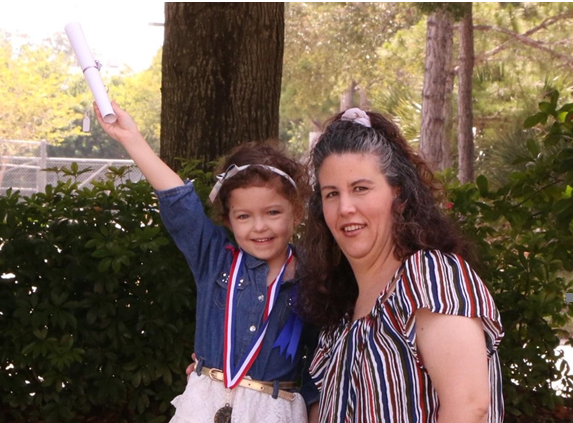
In the world of Montessori education, students learn by using all their senses – sight, smell, hearing, taste and touch. So how did a Montessori school adapt when forced to close its brick-and-mortar campus and transition to online learning?
More specifically, how did a Montessori school that primarily serves students who are deaf or hard of hearing adapt to this new normal?
At Blossom Montessori School for the Deaf, one of only two schools in the country that use Montessori methods to teach deaf and hard-of-hearing children using both English and American Sign Language, executive director Julie Rutenberg knew innovation would be key.
“You’re taking a hands-on curriculum and putting it on a computer,” said Rutenberg, who opened the school in 2003 with eight students. “Our teachers adapted and put their day online.”
The challenges were multiplied because Blossom, which strives to keep a ratio of one teacher to five students, also enrolls the brothers and sisters of deaf children as well as children with deaf parents. Additionally, it’s opened its doors to a limited number of hearing children whose parents want them to learn in a unique environment.
That takes quite a bit of innovation absent a worldwide pandemic.
It helped that all 24 of the school’s pre-K through upper elementary families already had computer access thanks to an anonymous donor who gave the school 21 Google Chromebooks. The technology allowed the students, 90 percent of whom receive state scholarships, including the Florida Tax Credit Scholarship for lower-income students and the Gardiner Scholarship for students with unique abilities, to begin their day virtually face to face with their teachers in videoconferences.
Keeping the videoconference groups small so that all students could have an unrestricted view of their teacher took a lot of planning, Rutenberg said. It was crucial though, because they had become accustomed to nine 70-inch interactive boards, a 2016 gift from Sharp Business Systems Florida, that enabled them to see clearly and interact with different media.
Beyond participating in videoconferencing, the students worked independently from the end of March until the school year ended with Montessori materials that administrators made available to parents when the campus shut down. Their teachers, all of whom have an extensive background in both deaf education and deaf culture, worked hard to create both small group and one-on-one lessons.
The school also sent craft kits home for the younger children and laminated paper versions of the learning games used in the classroom so students could continue to play them at home. Art projects were shared through screen shots.
Meanwhile, pre-K teachers recorded themselves reading books that were delivered virtually with captions. Older students participated in weekly show-and-tell sessions, sharing favorite items with their classmates.
Blossom parent Lourdes Millar said everyone made the best of a challenging situation. Millar and her husband are both deaf. Their daughter, Loryann, is deaf in one ear.
“A 6-year-old using a laptop is hard,” she said. “I had to keep helping my daughter in how to communicate with (her) teacher.”
Millar said she learned along with Loryann, a vivacious curly-haired girl who loves the Disney princess Rapunzel. And, Millar said, she realized a renewed appreciation for teachers.
She plans to keep Loryann on track over the summer by participating in a countrywide library-based literacy program for the deaf and hard of hearing at the Deaf Literacy Center. Another option may be a year-round enrichment program offered by the Family Center on Deafness. Blossom partners with both.
I want to keep her mind active,” Millar said. “I don’t want her to forget.”
One event Blossom students aren’t likely to forget was the opportunity to come back to campus May 21, one at a time, to receive recognition for successfully completing the school year. The annual “stepping up” ceremony marks their progress from one grade to the next.
Despite the success of Blossom’s online learning efforts, Rutenberg said she hopes to re-open the campus in August. Enrollment is holding steady and families are eager to return to normal.
But if COVID-19 peaks again in the fall, Rutenberg said, she and her team will be ready.


